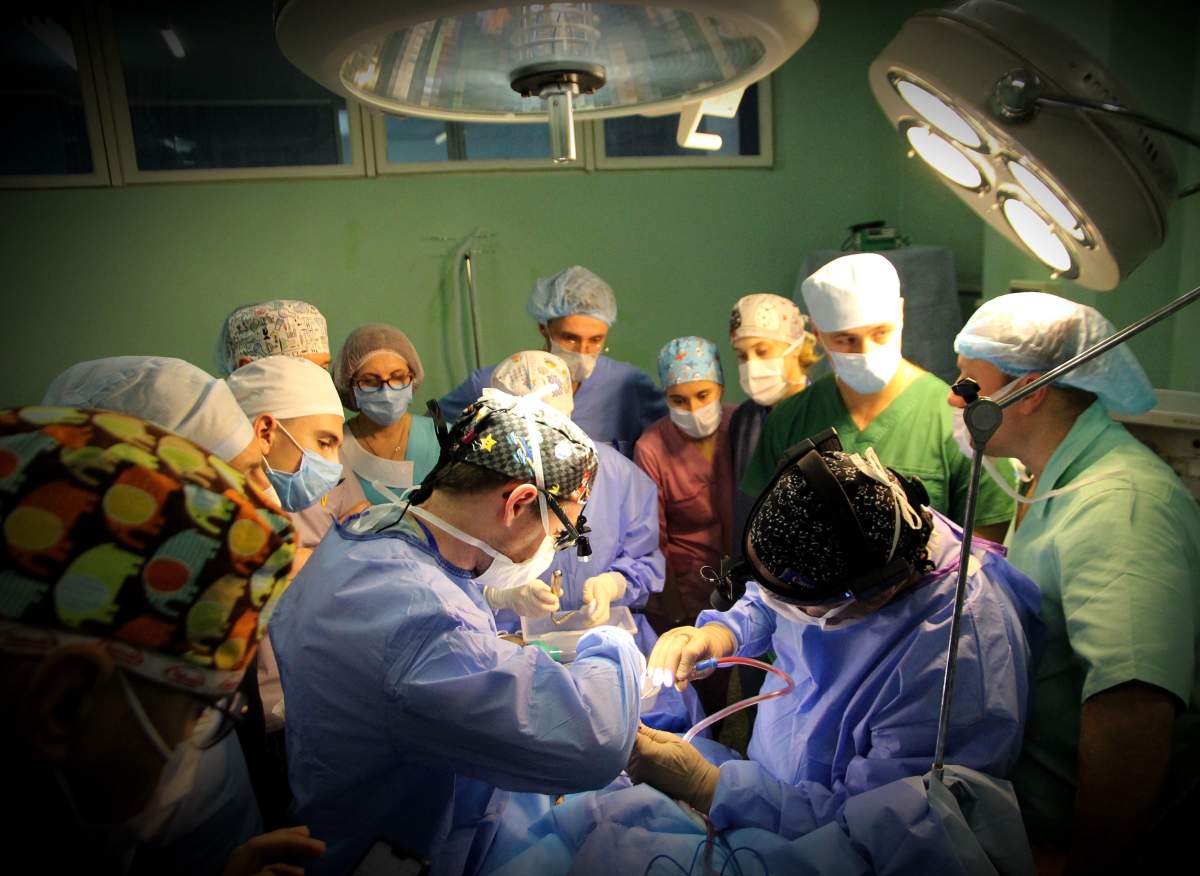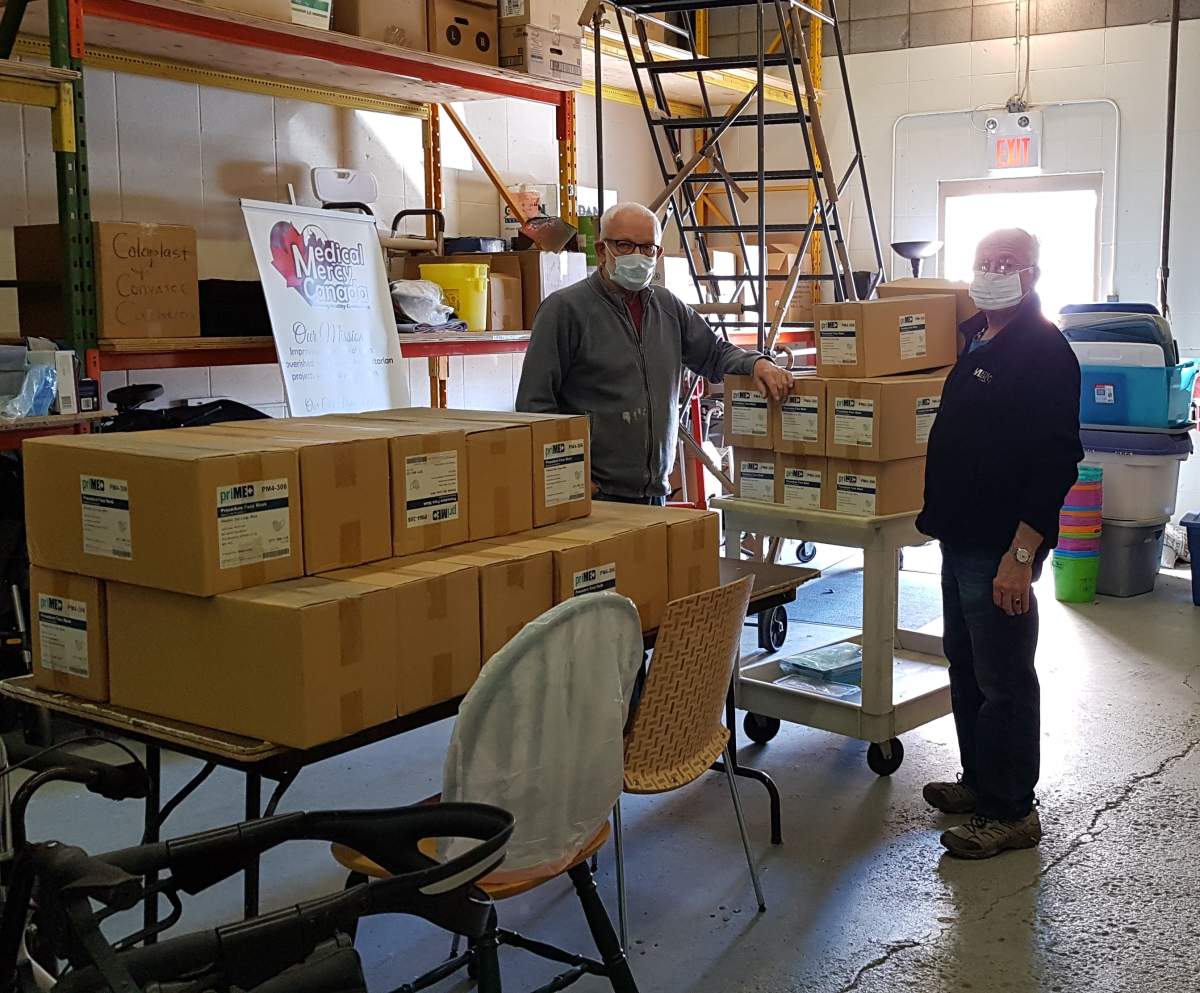With the violence of Russia’s invasion of Ukraine escalating, sitting on the sidelines watching the atrocities is a challenge for medical professionals in Canada hoping to help.

Dr. Oleh Antonyshyn, a Ukrainian-Canadian cosmetic and reconstructive surgeon based in Toronto, has been on seven missions to Ukraine since the Crimean war, but has never witnessed his homeland in this kind of disarray.
“This is beyond a scale I think that anyone has seen (in Ukraine),” said Antonyshyn, who works out of Sunnybrook Hospital. “I think this is more on the scale of what you might see in the Second World War.”
“I am angry that this happened. It is unprecedented, and it’s totally uncalled for and a waste of human life and every possible way.”
Through his sources in Ukraine, Antonyshyn said there have been specific calls for doctors who specialize in “secondary post-traumatic reconstruction.” While Antonyshyn knows his experience in Ukraine — where he’s helped with dozens of reconstructive face surgeries for victims of bombings and shootings — could be useful, it’s not so easy to get there given the scale of the violence.
In previous years, Antonyshyn has taken dozens of doctors and health-care workers on trips to help Ukrainian medical services. During those trips, they’d often provide training and work alongside their Ukrainian counterparts in hospitals, but without safe passages in place, getting to the point of care would be impossible.
“I’d be there in a heartbeat. I think the responsible thing is to ensure that we can function safely in the safe zone,” he said. “Taking that little bit of extra time to organize ourselves so that we can be as productive and helpful as possible without impacting resources of our hosts in whatever country we go to. I think that’s very, very important.”
Antonyshyn said, more than likely, getting into Ukraine will be difficult if not impossible, but he does plan on going to border countries to potentially provide aid.
“We cannot as Canadian civilians take a group of surgeons and nurses into Ukraine – we can’t do that responsibly.”

As of Wednesday, there are more than 2,000 dead in Ukraine and tens of thousands in care, according to Ukraine’s Emergency Service. The significant loss of life and injuries would devastate any health-care situation regardless of what country, Antonyshyn said.
“We would overflow our hospitals in Canada in a day with what’s happened in Ukraine,” he said. “They’re under the strain of constant bombing and (dealing with) … power failures, cyberattacks and everything else you could possibly imagine makes it difficult to function.”

Beyond the challenges the doctors are facing, including a lack of supplies, there are fears that the hospitals they use for treatments and to save lives will not still be standing when they return to work.
“They’re fearing for their lives. As well, they don’t know whether they’ll be able to function as a hospital from one day to the next,” said Antonyshyn. “They’re trying to ship as many patients to safe places as quickly as possible.”
In Antonyshyn’s previous trips, the Canadian medical teams would work hand-in-hand with Ukrainians. At times, during surgeries, there would be several surgeons working together to conduct tissue transfers, facial and skull reconstructions, microsurgeries and other procedures. He recalled the injuries that some people would have, noting that it wasn’t just shrapnel or fractured skulls, but a myriad of injuries that are almost indescribable.

Get breaking National news
“(There were) horrific things that you would very, very, very rarely see in Canada, even after the worst car accident,” he said.
Canadian aid on the way to Ukraine
The Canadian government is committing an additional $100 million in humanitarian assistance for Ukraine as its war with Russia rages on.
The additional humanitarian assistance Ottawa announced Tuesday will be distributed among “experienced partners” to address the most urgent humanitarian needs on the ground in Ukraine and neighbouring countries.
“This support will help provide emergency health services (including trauma care), protection, support to displaced populations and essential life-saving services such as shelter, water and sanitation and food,” the government said in a news release.
Global News contacted Global Affairs Canada to inquire about how much of the money would be going toward medical aid and if other measures were being put in place to assist Ukraine. There was no response to the inquiry by the time of publication.
At least one volunteer organization, Medical Mercy Canada which has established connections in Ukraine, is already mobilizing medical volunteers on the ground and resources from their Calgary location to help with the crisis. Led by vice-president Anna Suprun, a former nurse who immigrated from Crimea in 2012, the organization has built deep ties with Ukrainian medical aid groups on the front lines.

“Everything that we have in our warehouse we’re ready to send. We’re collecting more, medical supplies, food, anything that we can send to help,” she said.
Suprun added that their focus over the past few years has been to train people in Ukraine to deal with crises. She noted that they’re still helping and in contact with physicians and health-care workers in Ukraine and are looking to see if Canadians with medical expertise may want to volunteer their services.
“We are ready to train and help as we’ve been doing, and we will try to see if there is a way for Canadians to be involved,” she said.
Similar to Antonyshyn, Suprun says she wants to use her medical knowledge and understanding of Ukraine’s medical systems to not only help from afar but on the front lines.
“I would like to go because my heart is there anyway. I know connections (will matter) and I speak both languages,” said Suprun. “Definitely, I would like to go there.”
But planning and making sure people are ready to help moving forward will be an important step, according to Suprun, who thinks the damage to Ukraine may last longer than people anticipate – even if the violence stops.
“We have to plan for the long term because from what we see from Ukraine, it will be in need for a long time even after this war is finished,” she said.

Both Suprun and Antonyshyn’s desires to help their homeland are welcome by Dr. Ihor Zastavnyy, a family physician based in Lviv who works closely with Medical Mercy Canada. He noted that in the near future as Ukraine continues to be blasted by Russian missiles, they will need experienced health-care workers.
“In some time we will need doctors for both the acute and war period. We need all of the instructors, doctors,” said Zastavnyy, noting that many doctors in Ukraine are trying to pass trauma courses and life support courses for when they’re called to help with the war.
Deep concerns about health-care supplies
With eastern Ukraine under most of the ongoing Russian bombardment, Zastavnyy has said that supplies are moving fine for the time being, but there is no safe passage of health-care supplies being given by the Russian military.
“Some of the cities are surrounded by Russians, and they don’t give us green corridors to give the supplies to the cities,” he said.

Help is on the way, as the first shipments of medical aid for Ukraine are set to arrive in Poland on Thursday, according to the World Health Organization (WHO).
The shipment, which is six tons of emergency and trauma care supplies, is supposed to help 150,000, but getting it into Ukraine could prove to be a challenge, according to WHO Director General Tedros Adhanom Ghebreyesus.
He added that medical supplies in Kyiv are currently inaccessible and there are country-wide reports of shortages of cancer medication, insulin and oxygen tanks.
“WHO is deeply concerned about the unfolding humanitarian concern in Ukraine,” said Tedros. “There is an urgent need to establish a corridor to ensure humanitarian workers and supplies have safe and continuous access to reach people in need.”
The WHO added that they’ve already released $5.2 million in funding, but still need additional funding of $45 million to help with the crisis in Ukraine and another $12.5 million to support refugees in neighbouring countries.

Given that there is still a pandemic unfolding, Tedros noted that there is likely “significant, undetected transmission” of COVID-19. He noted the low testing, lack of access to vaccines and health care focused on the war will only exacerbate COVID-19 in Ukraine.
Three major oxygen plants in the country have also closed, threatening access for patients, the WHO said, with at least 2,000 people requiring medical oxygen even before the conflict.
As Antonyshyn puts it, a virus, as deadly as it is, is probably less threatening to people than the gunfire and bombs they’re under siege from.
“I think the pandemic right now is probably their least concern, that would pale in comparison to everything else,” he said.
— with files from Reuters











Comments